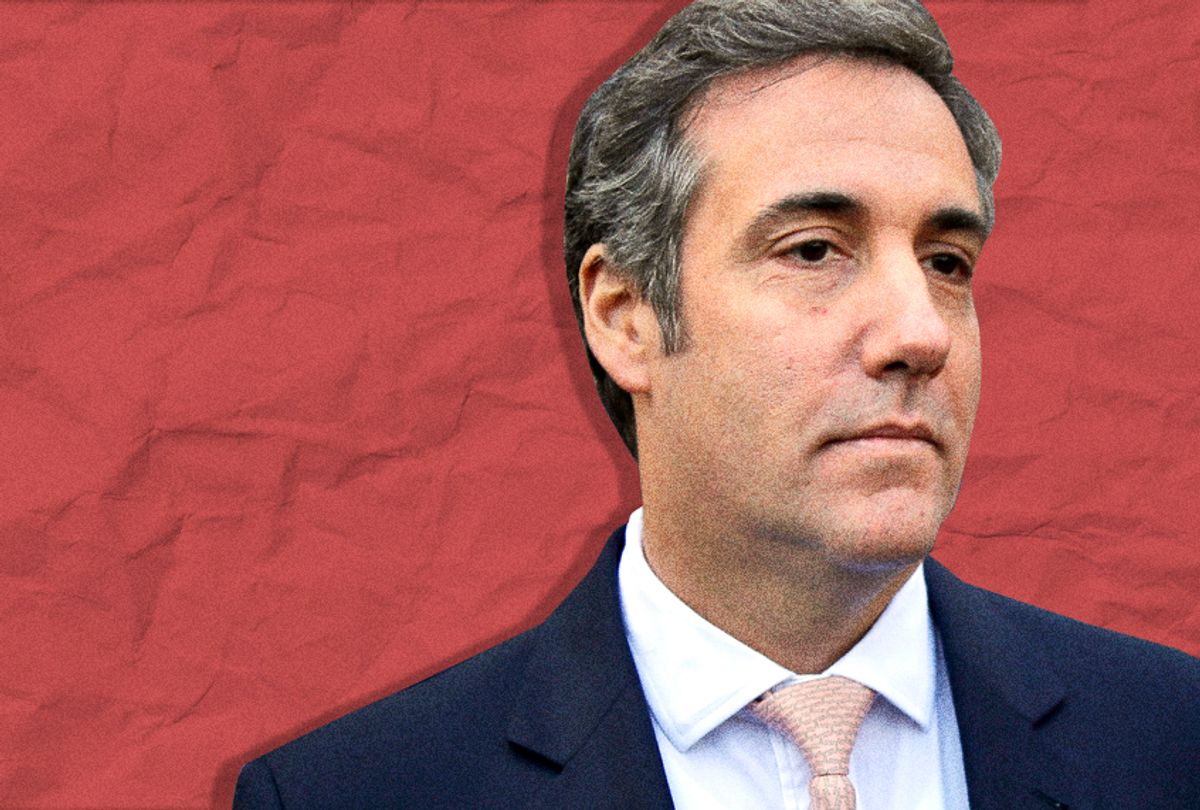Michael Cohen is not a good lawyer. He has made several mistakes and opened himself to ethical complaints during his representation of President Donald Trump. He doesn’t seem to know the law, which is not the best trait for a lawyer to present.
Cohen's most recently-discussed factual error is his statement, made in 2015, that spousal rape does not exist. Here’s the context: He was threatening a Daily Beast reporter who was writing a story about Ivana Trump’s claim that Trump violated her while they were married. This week, an audio recording was released that brought that story back into the news.
Let’s forget the detailed aggressive threats that Cohen made to the reporter – those are nicely laid out here. The part we’ll focus on is that Cohen – a lawyer, let me remind you – asserted that spousal rape does not exist. He said that in 2015.
Let’s be clear about this. Spousal rape is a criminal offense in all 50 states. It’s true that it wasn’t always a crime. Up until the late 1970s, spousal rape legally did not exist – a woman was presumed to consent to her husband as part of her wifely duties. But by the 1980s, criminal rape charges were being successfully brought against spouses across the country. Every state has now changed its laws.
That doesn’t mean that the problem is solved. Eleven states -- Connecticut, Maryland, Michigan, Minnesota, Mississippi, Nevada, Ohio, Oklahoma, Rhode Island, South Carolina and Virginia -- still treat spousal rape as somehow different from other kinds of rape, usually with lesser penalties.
In most of these states, if the married couple is living together, spousal rape exists only if the perpetrator used force or threat of force, not if the victim was drugged or otherwise coerced. Indeed, Mississippi treats marriage as a defense to rape and Minnesota treats it as an exception, as long as there was no force or threat of force involved. Nevada and Connecticut state that marriage is not a defense if force or threat of force is used, which presumes that, for nonforcible rape, marriage is a defense even if the couple is not cohabitating. Rhode Island specifically states that rape using mental incapacitation or physical helplessness does not apply to spouses, whether or not they are living together. Michigan has a similar exception for mental incapacitation.
Three states merit special consideration. Oklahoma requires force or threat of force along with “apparent power of execution to the victim or to another person.” So the threat of violence isn’t enough unless it appears the perpetrator can carry out his threat. South Carolina requires a high degree of violence (whether actual force or threat) and the spouse must report it within 30 days of the act. The maximum penalty also is reduced from 30 years to 10. Finally, Virginia is an outlier: Although the definition of rape does not vary, the punishment does; someone who rapes their spouse can forgo jail time and go to counseling instead, with court approval.
What is going on in these states? Why are legislators OK with spouses raping each other as long as there’s no violence or threat of violence? It appears they are concerned that consent is harder to define in the spousal relationship, where, I guess, sex at any time is presumed to be part of the deal. This leads into the Miscommunication Rape Myth, the idea that men and women simply don’t communicate the same way, so women’s “soft refusals” are seen as consent by men. This myth is just that – a myth. Studies have shown not only that men understand demurrals and soft refusals even in a sexual context, but that they themselves would use a soft refusal to turn down sex. Despite this evidence, this rape myth (and many others) persist in our society.
After the initial publicity of Michael Cohen’s error and the existing disparate treatment of spousal rape, I thought that at least some legislators in some states would work to change these laws. Perhaps I shouldn't be surprised that they haven’t.
In fact, only Ohio made an attempt. Ohio excludes cohabitating spouses from sexual battery laws and rape laws, except if force or threat of force are used. Recent repeated efforts to remove that loophole in the Buckeye State met with no Republican support and bills that died in committee.
Maybe this next round of bad publicity will motivate legislators in these holdout states to make spousal rape legally equivalent to other forms of forcible or acquaintance rape. But considering the response so far, I can see no reason to be hopeful.

Shares